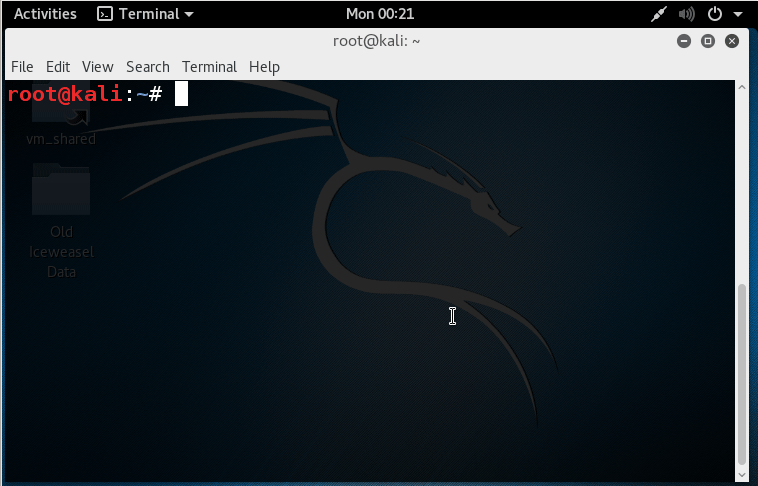https://github.com/codeexpress/respounder
Respounder detects presence of responder in the network.
https://github.com/codeexpress/respounder
attack-defense attack-prevention blue-team computer-security golang hackers llmnr network-security network-security-monitoring responder
Last synced: about 1 month ago
JSON representation
Respounder detects presence of responder in the network.
- Host: GitHub
- URL: https://github.com/codeexpress/respounder
- Owner: codeexpress
- License: apache-2.0
- Created: 2018-02-05T04:42:14.000Z (about 8 years ago)
- Default Branch: master
- Last Pushed: 2019-06-15T07:51:13.000Z (over 6 years ago)
- Last Synced: 2025-05-04T19:39:01.528Z (10 months ago)
- Topics: attack-defense, attack-prevention, blue-team, computer-security, golang, hackers, llmnr, network-security, network-security-monitoring, responder
- Language: Go
- Homepage:
- Size: 16.6 KB
- Stars: 316
- Watchers: 17
- Forks: 38
- Open Issues: 1
-
Metadata Files:
- Readme: README.md
- License: LICENSE
Awesome Lists containing this project
- awesome-cybersecurity-blueteam-cn - Respounder - 可检测网络上是否存在使用[Responder](https://github.com/SpiderLabs/Responder)来进行LLMNR / NBT-NS / mDNS投毒的情况 (安全监控 / 网络安全监控(NSM))
- awesome-cybersecurity-blueteam - Respounder - Detects the presence of the Responder LLMNR/NBT-NS/MDNS poisoner on a network. (Security monitoring / Network Security Monitoring (NSM))
README

# res·pound·er
/rɪˈspaʊnd dər/
noun
-
-
Identifies compromised machines before hackers run away with the loot (hashes)
Respounder sends LLMNR name resolution requests for made-up hostnames that do not exist.
In a normal non-adversarial network we do not expect such names to resolve.
However, a responder, if present in the network, will resolve such queries
and therefore will be forced to reveal itself.
## Download
### Latest Releases
Respounder is available for 32/64 bit linux, OS X and Windows systems.
Latest versions can be downloaded from the
[Release](https://github.com/codeexpress/respounder/releases) tab above.
### Build from source
This is a golang project with no dependencies. Assuming you have golang compiler installed,
the following will build the binary from scratch
```
$ git clone https://github.com/codeexpress/respounder
$ cd respounder
$ go build -o respounder respounder.go
```
## Usage
Running `respounder` is as simple as invoking it on the command line.
Example invocation:
```bash
$ ./respounder
.´/
/ ( .----------------.
[ ]░░░░░░░░░░░|// RESPOUNDER //|
) ( '----------------'
'-'
[wlan0] Sending probe from 192.168.0.19... responder not detected
[vmnet1] Sending probe from 172.16.211.1... responder not detected
[vmnet8] Sending probe from 172.16.55.1... responder detected at 172.16.55.128
```
### Flags
```
$ ./respounder [-json] [-debug] [-hostname testhostname | -rhostname]
Flags:
-json
Prints a JSON to STDOUT if a responder is detected on
the network. Other text is sent to STDERR
-debug
Creates a debug.log file with a trace of the program
-interface string
Interface where responder will be searched (eg. eth0).
Not specifying this flag will search on all interfaces.
-hostname string
Hostname to search for (default "aweirdcomputername")
-rhostname
Searches for a hostname comprised of random string instead
of the default hostname ("aweirdcomputername")
```
### Typical usage scenario
#### Personal
Detect rogue hosts running responder on public Wi-Fi networks
e.g. like airports, cafés and avoid joining such networks
(especially if you are running windows OS)
#### Corporate
Detect network compromises as soon as they happen by running respounder
in a loop
For eg. the following `crontab` runs respounder every minute and logs a JSON file to syslog
whenever a responder is detected.
```bash
* * * * * /path/to/respounder -json | /usr/bin/logger -t responder-detected
```
Example `syslog` entry:
```bash
code@express:~/$ sudo tail -f /var/log/syslog
Feb 9 03:44:07 responder-detected: [{"interface":"vmnet8","responderIP":"172.16.55.128","sourceIP":"172.16.55.1"}]
```
## Demo

## Coming Up Next: Android App
There are plans to port this tool to an android app so that adversarial Wi-Fi networks
(eg. WiFi Pineapple or WiFi Pumpkin running responder) can be
detected right from a mobile phone.